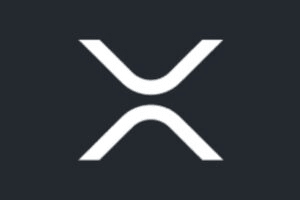based on materials from the website - By Times Tabloid

The central bank of Malaysia promotes the use of XRP as an alternative to bank deposits.
Cryptocurrency commentator SMQKE shared a provocative thought from a recent working paper by Bank Negara Malaysia (BNM): 'Private tokens like XRP may be widely used in the future as a means of payment outside the banking system, replacing CIC or bank deposits.'
The post went viral on platform X, highlighting the growing interest in how digital tokens can evolve as an alternative to traditional deposit systems. SMQKE's timely coverage drew attention to Malaysia's groundbreaking research on tokenized financial instruments.
The quote is taken from the BNM working paper (WP3/2025) 'Foundations of Modern Money and Its Application to Central Bank Digital Currency (CBDC): A Research Analysis of Sharia.' This in-depth study considers modern money as a social construct underpinned by balance agreements and evaluates whether privately issued tokens can function similarly to bank deposits in the future.
The authors carefully consider the legal, Sharia, and prudential aspects, noting that while tokens like XRP have compelling characteristics, the requirements for regulatory and religious compliance must be fully addressed before any practical implementation.
The mention of XRP in BNM is strategic. The XRP Ledger is designed for low-cost, high-performance payments and virtually instantaneous settlements—characteristics closely aligned with the expected features of payment-layer tokens.
These technical advantages make XRP a successful example of how private tokens can, under certain conditions, mimic or complement bank deposits in everyday transactions.
The article intentionally contrasts XRP with more established cryptocurrencies like Bitcoin and Ethereum. While these well-known tokens serve as high-decentralization savings assets, their high price volatility, limited throughput, and consensus mechanisms make them less suitable for routine payments or scalable settlement systems.
This justification underlies BNM's classification of Bitcoin and Ethereum as 'unsuitable payment instruments,' especially compared to optimized alternatives like XRP.
It is crucial to interpret the BNM working paper as exploratory rather than prescriptive. Although the study indicates a willingness to explore the use cases of private tokens, BNM has made no changes to its policy.
Central banks must balance innovation with monetary stability—the potential risk of disintermediation of deposits and its impact on monetary control remain paramount. Nevertheless, BNM's study places Malaysia in a select group of central banks actively considering private digital tokens as part of future payment architecture.
What awaits Malaysia in the future?
The working paper lays the groundwork for future collaboration. Possible directions include pilot programs for tokenized payments, research on CBDC integration, and a regulatory framework compliant with Sharia norms.
Any practical implementation will require multi-layered steps—from legal reforms to consumer protection measures—before tokens like XRP can meaningfully complement or replicate bank deposit systems.
$BTC , $XRP , $BNB
#Сryptomarketnews , #TrumpTariffs
Here, in one news feed, we gather and publish the freshest and most interesting news from more than a dozen news sites and publications regarding changes in the cryptocurrency market and global financial changes!!!
Welcome to us! There’s enough news for everyone!!! 😉


